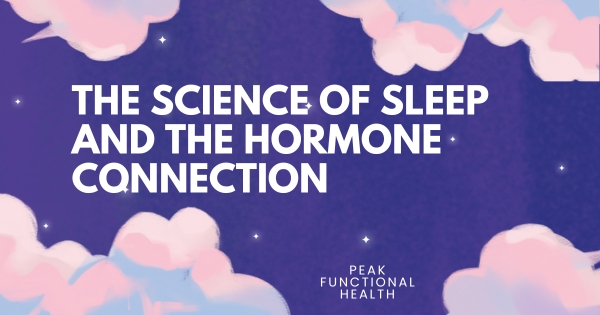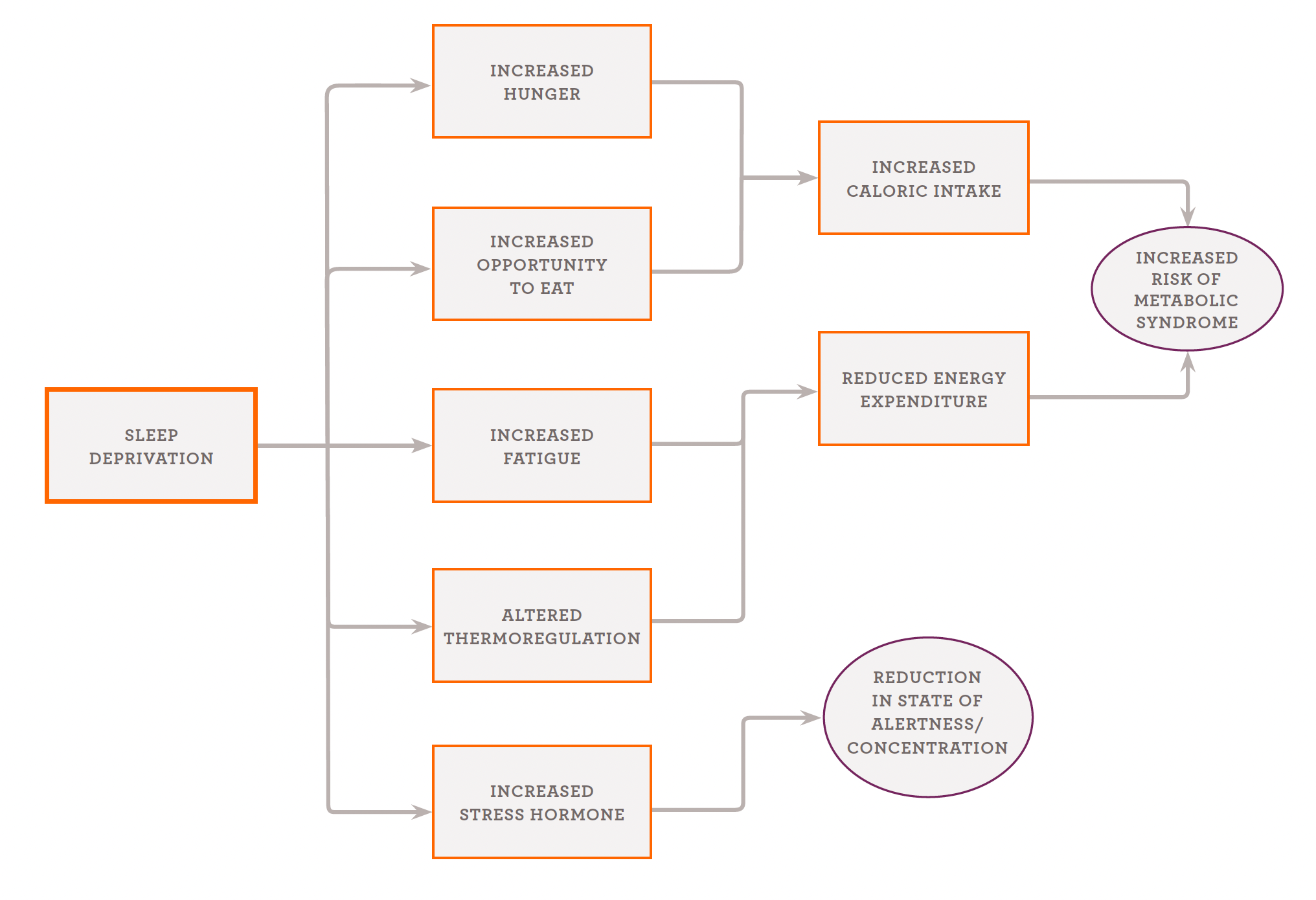The Science of Sleep: Why Addressing Sleep Debt Is Critical

An Underrated Skill
We all know that sleep is important. But in the world of Functional Nutrition, we go a step further. Sleep isn’t just rest—it’s a foundational skill, and how well you sleep can tell us more about your health than many lab tests can.
Alongside blood sugar balance and bowel movements, sleep makes up what we call the non-negotiable trifecta. If even one of these three pillars is out of balance, there’s a high chance that your internal terrain—the environment that shapes every system in your body—is struggling. That’s why we pay close attention not just to how many hours you sleep, but also to the quality, consistency, and timing of your rest.
Poor sleep is also highly correlated to metabolic syndrome with shift workers bearing a high cost for their non-standard hours, however necessary they may be. Let's dive deeper into the connection between sleep and myriad impacts it can have on health outcomes.

Sleep Is a Skill—Not Just a Habit
Many people think of sleep as something you either get or don’t get, a passive part of life that "should" just happen. But sleep is actually a skill—something that can be cultivated, strengthened, and supported. And it's during sleep that your body carries out some of its most essential healing work.
Between 11:00 PM and 3:00 AM, your liver is actively detoxifying and regenerating. Staying up late or eating late-night snacks can interfere with this critical window, reducing your body’s ability to cleanse itself. Meanwhile, your blood sugar gets a break. In a world where many people eat every few hours, sleep may be the only time your body enters a fasting state, allowing for metabolic recalibration and insulin sensitivity restoration.
Sleep also plays a central role in immune regulation. Chronic sleep deprivation suppresses your Natural Killer (NK) cells, the body's first line of defense against infections and even cancer. Your brain, too, relies on sleep to heal. Memory, mood, focus, and emotional resilience are all sharpened by deep sleep, during which the brain clears out waste products that build up during waking hours.
Your nervous system also uses sleep to recalibrate. Without adequate rest, your stress tolerance drops, adrenal hormones go out of rhythm, and you may feel wired, anxious, or emotionally fragile. Hormones and gut health are equally affected, as the production of serotonin (your feel-good neurotransmitter) and melatonin (your sleep hormone) relies on sleep—and is influenced by it. When these systems are off, the result is often even more disrupted sleep, creating a vicious cycle.
In short, sleep is not just "down time." It’s repair time. Cut that short, and you cut off a vital window for restoring balance and health.
What Happens When Sleep Falls Apart?
Just like blood sugar imbalances can hide in cravings, fatigue, or brain fog, sleep issues aren’t always as obvious as feeling tired. The signs of sleep debt often show up in symptoms that seem totally unrelated.
If you're frequently foggy-headed or irritable, relying on caffeine or sugar to get through the day, or waking up multiple times at night, sleep may be a contributing factore. Frequent nighttime urination (nocturia), low pain tolerance, hormone swings—especially during menopause—or that wired-but-tired feeling are all common manifestations of a disrupted sleep foundation.
Many of these problems go deeper than simply “bad sleep hygiene.” Insomnia, restless sleep, or frequent nighttime waking often stem from inflammation, hormone imbalances, nervous system dysregulation, or even unresolved emotional stress. Simply taking a melatonin supplement won’t fix these issues if the underlying terrain is still inflamed or unregulated. That’s why we don’t just chase symptoms—we look for root causes.
Circadian Rhythm: The Clock That Governs Your Body
One of the most powerful but underutilized tools for healing sleep is resetting your circadian rhythm. This internal clock is shaped by cues like light, food, temperature, and activity. When it’s in sync, your body knows when to wind down, detox, and regenerate. But when it's disrupted—by late-night screen time, irregular meals, or chronic stress—your sleep becomes fragmented, and your healing suffers.
Start by aiming for a consistent sleep schedule. I like to go to bed and rise with the sun–or at least as close as is reasonable with the changing seasons where I live. While this practice catches the criticism of my night-owl friends, it can help time your biological clock to the natural rhythm of day. Dim your lights in the evening, avoid blue light after 6:00 PM, or wear blue-blocking glasses to support natural melatonin production.
Stop eating two to three hours before bed, especially avoiding refined carbohydrates, alcohol, and heavy meals, which can disrupt sleep cycles. Create a calming bedtime routine that signals safety to your nervous system—prayer, meditation, journaling, gentle stretching, or a bath with magnesium sulfate and lavender are all great options. Keep your bedroom cool and dark, and aim to get bright sunlight exposure in the morning to anchor your circadian rhythm.
For some people, therapies like acupuncture, craniosacral therapy, or massage can support nervous system regulation. Emotional stress and unresolved trauma are also common sleep disruptors, and seeking support for emotional processing can make a significant difference.
What If You Still Struggle?
Even with good sleep habits in place, some people still struggle to sleep well. That’s a sign that your sleep debt may be rooted in deeper imbalances.
Inflammation—especially in the gut or brain—can interfere with neurotransmitters that govern sleep. Blood sugar crashes during the night can trigger cortisol spikes, waking you up suddenly. Hormonal shifts, particularly in perimenopause and menopause, are another common cause of sleep disruption. Even low-grade, chronic stress keeps your nervous system on high alert, blocking restful sleep. And underlying issues like Interstitial Cystitis or bladder dysfunction can make nocturia a recurring problem.
These root causes require targeted support—not just sleep aids. In Functional Nutrition, we help support these deeper issues, looking beyond symptoms and creating conditions where sleep can naturally return.
Final Thoughts: Sleep Is a Healing Skill
Sleep might seem like something you should just know how to do. But in an overstimulated, sleep-deprived world, it’s a lost art for far too many of us. And yet, it remains one of the most powerful tools for reversing chronic symptoms, regulating hormones, and restoring balance to your terrain.
Whether you're dealing with fatigue, inflammation, mood swings, or gut issues, sleep is always a place to start. When you protect your sleep—not just through better habits, but through deeper healing—you unlock one of the most foundational tools in your health toolbox.
Healing isn’t just about avoiding disease, it’s about enjoying life to its fullest. Sleep on!
*Image courtesy of Functional Nutrition Alliance
Stay in touch!
Subscribe to our newsletter for periodic updates, special offers, and education!
Thank you for subscribing!
Have a great day!